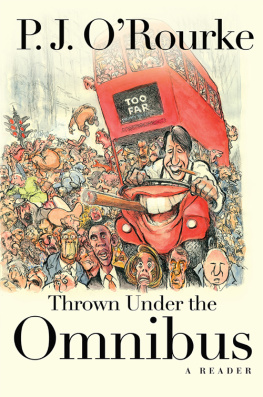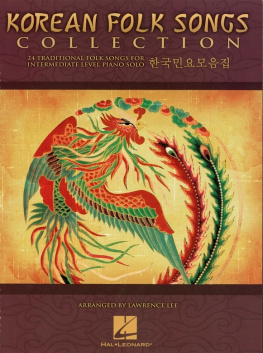First published in 2005 by
Kegan Paul Limited
Published 2013 by Routledge
2 Park Square, Milton Park, Abingdon, Oxon OX14 4RN
711 Third Avenue, New York, NY, 10017, USA
Routledge is an imprint of the Taylor & Francis Group, an informa business
Kegan Paul, 2005
All Rights reserved. No part of this book may be reprinted or reproduced or utilised in any form or by any electric, mechanical or other means, now known or hereafter invented, including photocopying or recording, or in any information storage or retrieval system, without permission in writing from the publishers.
British Library Cataloguing in Publication Data
A catalogue record for this book is available from the British Library.
ISBN 13: 978-0-710-30981-5 (hbk)
Chong Chol (1536-1593) was the youngest of six children in a not very prominent noble family that advanced itself through marriage into the royal family. Chong Chols elder sister was married to Injong; his second sister was married to Prince Kyerim. A regular visitor to the palace as a boy, he was particularly friendly with the future king Myongjong.
In 1545, Injong came to the throne. Dead within eight months, he was succeeded by his half-brother, Myongjong, who was just a boy at the time. Myongjongs accession was followed by the great Ulsa purge of 1545. Orchestrated by Yun Wonhyong, younger brother of Myongjongs mother, Queen Munjong, the Ulsa purge was an attempt to aggrandize power. Prince Kyerim, who belonged to Injongs side of the family, the opposition in the struggle for power, was promptly executed, and his wifes family, Chong Chols family, was swept into the ensuing vortex: Chong Chols father was sent into exile and his eldest brother died on his way into exile, a victim of the severe torture he had endured. Chong Chol, only ten years old at the time, followed his father into exile, first to Kwanbuk, subsequently to Chongbyong, and finally to Yonil, where he remained until Myongjong lifted the decree of exile in 1551.
The Chong family now moved to Changpyong near Tamyang in Cholla Province. Chong Chol lived in Changpyong until he passed the civil service examination. Kim Yunjae, his master, had retired from the bureaucracy at the time of the Ulsa purge. Returning to Tamyang, he had set up a sort of school-salon, which had become the cultural center of the area. Chong Chol studied poetry under Im Okryong (1496-1568) and Ki Taesung (1527-1572); he also received instruction from Song Sun (1493-1583) and Kim Inhu (1519-1560), prominent literati of the period, and he was on friendly terms with the hanshi poets Paek Kwanghun and Choe Kyongchang, and such prominent men of letters as Yi Toegye, Yi Yulgok, Song Hon and Song Ikpil. Im Okryong, magistrate of Tamyang, became Chong Chols poetry teacher in 1558. An important hanshi poet (Korean poet writing Chinese verse), Im was skilled in Tang poetry, notably Li Bai style, at a time when the Song tradition was in the ascendancy. He was sixty-three years old; Chong Chol was twenty-three. The master obviously had political ambitions that had not been realized. Cold Moon on Autumn Mountain expresses his feelings:
The autumn mountain throws up a cold moon;
it hangs through the night on the paulownia in the yard.
Ive waited long for the noble phoenix;
it will hardly come in my lifetime now
Chong Chols reply is filled with a graciousness surprising in such a young man:
The masters poems have the phoenix heart;
the moon hangs in the paulownia branches.
White hair fills the autumn moon;
the worn face is that of a hero.
In 1561, Chong Chol passed the civil service examination at the chinsa level, the equivalent of a modern undergraduate degree. In 1562, he took first place in the shimungwa (Chinese classics examination) and began his public career as an arbitrator in the Office of the Inspector General. His childhood friend, Myongjong, welcomed him to court. Indeed Myongjong saw to it personally that he got the position in the office of the Inspector General. This should have been a happy period for the young bureaucrat, but unfortunately, Myongjongs cousin, Prince Kyongyang, in a ploy to get control of his wifes family property, murdered his wifes brother. Myongjong suggested lenience, but Chong Chol insisted on the rigor of the law. Father and son were executed. Chong Chols relationship with the king never recovered. While Myongjong remained king, advancement for Chong Chol in the bureaucracy was effectively blocked; he circled in a series of low-level posts, an easy target for his enemies.
Sonjos accession to the throne in 1567 marked a new beginning for Chong Chols official career. Intent on bringing into the government all the young men of talent he could muster, Sonjo granted his special favor to Chong Chol and to Yi Yulgok (1536-1584), who was one of Koreas greatest Confucian scholars.
The next few years were very active in the young officials life. He appears to have been very outspoken in court, unwavering in his support of righteousness. In 1570, his father died, and mourning etiquette demanded that he withdraw from court activities. Two years of formal graveside mourning ensued before he returned to the bureaucracy. In 1573, his mother died, entailing a further two years of formal mourning. He returned to court in 1575.
Meanwhile, the great Easterner-Westerner factional battles had begun. Chong Chols political fortunes ebbed and flowed with the oscillations of the battle between the rival groups. Initially, Kim Hyowon (1532-1590) and Shim Uigyom (1535-1587) were at the center of the controversy, but eventually they both faded into obscurity. The row began in 1575 over the appointment of the secretary in the Ministry of Appointments. This was not a ranking post, but it was a position that wielded significant power. The incumbent (Kim Hyowon) had the right to nominate his successor. Shim Uigyom, however, had opposed Kims appointment to the post, so Kim now opposed the appointment of Shims brother as his successor. The sarim (Confucian scholars) in the government took sides. Kim lived in east Seoul; his supporters were known as the Easterners (Tongin). Shim lived in west Seoul; his supporters were called the Westerners (Soin). The Easterners were radical reformers; the Westerners were doves. The Easterners divided into Southerners (Namin) and Northerners (Pugin); the Westerners divided into Noron and Soron. The Easterners followed the teachings of Yi Toegye, and the Westerners followed the teachings of Yi Yulgok.
There had been a rebellion in Hwanghae Province. Kim Hyowons group sought to impeach Pak Sun (1523-1589) for his handling of the affair. Chong Chol, a mere four months back in court at the time, vehemently opposed the move and tried to get Yulgok to restrain Kim Hyowons Easterners. Disappointed with Yulgoks efforts and knowing that Sonjo was not going to do anything about the situation, he retired to the country despite Sonjos efforts to dissuade him. He spent the next three years in the country, concentrating on what a







![Robert Choi - Korean Folk Songs: Stars in the Sky and Dreams in Our Hearts [14 Sing Along Songs with the Downloadable Audio included]](/uploads/posts/book/423508/thumbs/robert-choi-korean-folk-songs-stars-in-the-sky.jpg)







